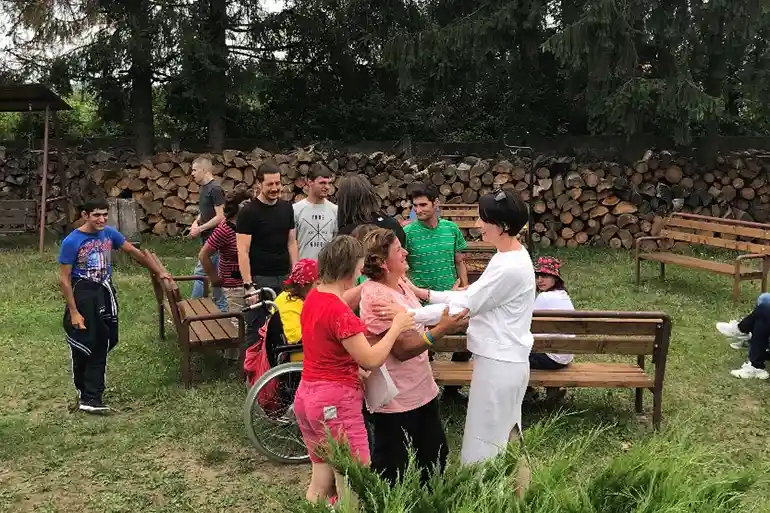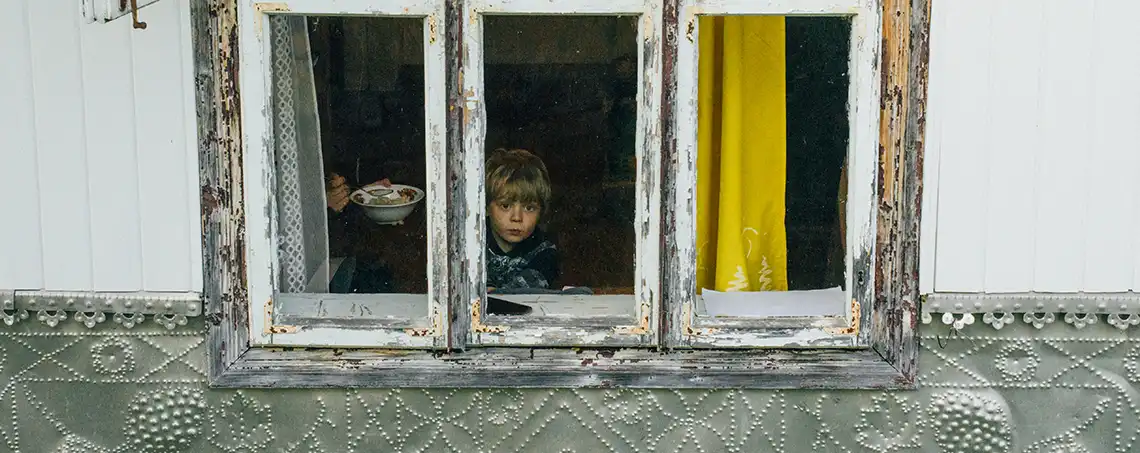Since the start of the war, Fondation de France has supported projects focused on supplying the basic necessities to people close to the front line or displaced persons in unoccupied Ukrainian regions. 18 months later, as the conflict continues, resources are dwindling and the needs of the population are constantly changing. For this reason, last June, the Solidarité Ukraine committee of Fondation de France decided to close the call for projects and concentrate on supporting around fifteen key partners. With this in mind, at the end of July 2023, a delegation comprising four members of the Solidarité Ukraine committee and two members of Fondation de France’s emergency team traveled to Ukraine. The aim was to meet with these partners to take stock of current projects and define objectives for the coming months.
Focus on current projects
In the first few days of the mission, the delegation made field visits to the supported projects to ensure that they were running smoothly. Current projects include one run by the NGO Your Support, which has opened a 180-place shelter in Lviv to accommodate people who have had to flee the war. It is currently the only facility in the municipality that accepts marginalized populations (people with animals, single men, families with disabled children, Roma people, etc.). In recent months, four establishments of this kind have had to close for lack of funding. Support from Fondation de France enables the project to continue.

Adapting to prepare for the future
As a second step, the committee members brought together the partners selected from among the sixty or so national and local organizations supported since the start of the war, to continue their humanitarian and human rights work. These players, depending on their capacities and needs, can benefit from specific support, with the aim of empowerment.
These partners were all present, and some even traveled across the country to take part in this exchange, sharing their visions, their priorities, the networks of trust on which they rely, and their needs. When asked about their perception of the partnership with Fondation de France, they emphasized the consideration, flexibility, and proximity they received.
Supporting those who support
On the ground, most of the response to social needs comes from Ukrainian civil society organizations. The state is primarily focused on ensuring the country’s security and fighting the invasion. As a result, humanitarians are constantly on the field, creating feelings of hopelessness, exhaustion, and the risk of burnout. But how can we help others when we’re so weak ourselves? The Ukrainian players present explained what is being done in their organizations to prevent the risk of burnout, as well as the various forms of support that are needed. Three actions were identified as priorities: training in psycho-education, to give people a clearer picture of their mental health and enable them to take the right action; training for managers in mental health in a stressful environment, to help them spot the strong and weak signals of ill-being; and, lastly, the setting up of regionalized practice analysis groups to create a safe space where everyone can express their views on the complex situations they encounter on a daily basis.
Fondation de France will activate these various levers over the coming months to support these hard-pressed teams and help them pursue their commitment to the most vulnerable.
Key figures « Solidarité Ukraine »
123 000 donations
90 000 donors
More than 17 million euros collected
Nearly 9 million euros redistributed
Over 140 actions supported




